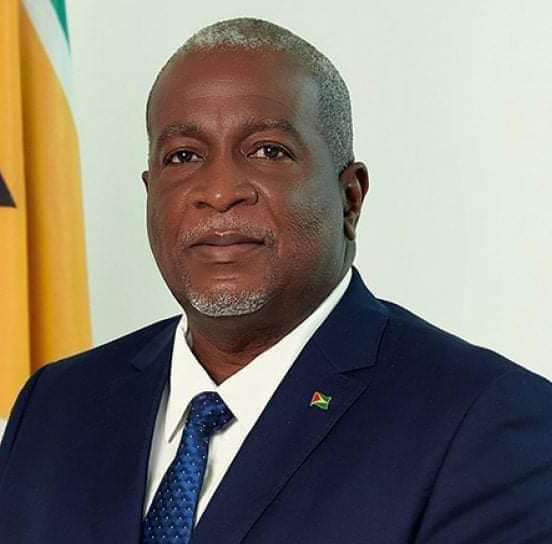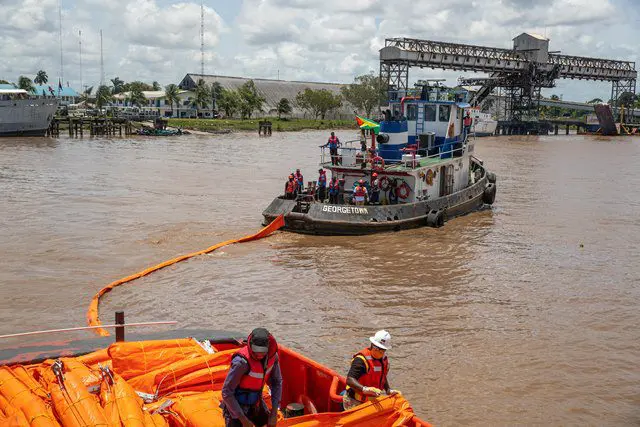In a move that government officials say is vital as oil production surges, Guyana’s National Assembly passed sweeping new legislation on Friday to enhance the country’s ability to prevent and respond to oil spills.
The Oil Pollution Prevention, Preparedness, Response and Responsibility Bill 2025, introduced in Parliament by Prime Minister Mark Phillips last month, establishes a national legal framework for managing oil spill risks and liabilities. The law requires responsible parties to bear the full cost of environmental restoration and compensation for damages, even beyond the cleanup phase.
“With the passage of this bill, Guyana is committed to building the necessary institutional capacity, ensuring adequate funding for emergency response and strengthening independent oversight so that the legislation is powerfully enforced,” Phillips said during Friday’s debate.

The legislation assigns the Civil Defence Commission (CDC) as the national authority for spill response coordination and mandates the creation of a National Oil Spill Committee within the CDC. That body is responsible for establishing an Incident Command System, executing regular drills, and publishing a National Oil Spill Contingency Plan.
Opposition parliamentarians made contributions, criticizing the bill and the government’s management of the oil sector. David Patterson of the Alliance for Change (AFC) expressed concern that the bill’s language may allow the parent companies of local oil subsidiaries to escape liability for spills. He recommended that the bill be sent to a special committee to allow for input from the opposition before a vote. That proposal was not accepted.
While the bill was crafted amid a rapid ramp-up in offshore oil production, expected to reach 900,000 barrels per day before year-end, its provisions are not limited to upstream operations.
Speaking during the debate, Natural Resources Minister Vickram Bharrat said the bill builds on Guyana’s evolving oil governance framework, citing recent investments in emergency containment infrastructure like a capping stack. He said the new law ensures that responsible parties are mandated to prevent, prepare, restore and return the environment to a state of normalcy.
Attorney General Anil Nandlall explained that the legislation addresses gaps that previously existed in Guyana’s legal apparatus, including a lack of standards for disaster preparedness, mandatory financial assurance for operators, and defined compensation mechanisms.
“These very valid and crucial concerns are addressed in this bill,” Nandlall told the House. He said the law aligns with Guyana’s Low Carbon Development Strategy.
Companies must report oil spills to the Civil Defence Commission (CDC), which may publish the details, while the EPA can order environmental restoration “as far as practicable.” Liability covers property damage, lost revenues, and ecological harm. Operators must show financial assurance or face license suspension or port clearance denial. A new board will assess claims from affected parties.
The bill was put to a vote and was passed. President Irfaan Ali is now expected to sign the bill into law.



